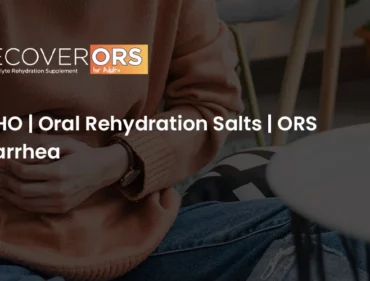
What is chronic constipation?
Chronic constipation is a condition that leads to infrequent or irregular bowel movements or difficulty passing stool. Occasional constipation, characterized by fewer than three stools a week, is extremely common. But you may have chronic constipation if your inability to pass stool lasts for several weeks or months. This condition can also interfere with your ability to perform daily activities.
If you want to prevent constipation and pass stool on a regular basis, you should manage your diet, eat high-fiber foods, and drink plenty of liquids, especially electrolyte water and solutions. If you have signs of constipation, you can try at-home methods to relieve constipation. But if that doesn’t work, you may need to consult a doctor for constipation diagnosis and treatment.
What are the signs of constipation?
- You pass less than three stools a week
- Your stools are lumpy or hard
- You have to strain while passing stool
- Your rectum feels blocked
- You feel like your rectum isn’t emptied completely
- You need assistance in emptying your rectum using your hands
- You need to reach into your rectum with your fingers to loosen stool
What are the causes of constipation?
Constipation generally occurs when your stool moves slowly through the digestive tract and can’t be eliminated regularly. Over time, the accumulated waste may become hard and dry, which can lead to blockages in the rectum that prevent further stool movement. Below, we highlight some of the possible causes of chronic constipation:
- Colon Blockage: There’s a blockage in your colon or rectum, which prevents the smooth passage of waste and stool. Colon and rectum blocks can occur due to anal fissures, bowel obstruction, narrowing of the colon, or cancer of the colon or rectum.
- Nerve Problems: The nerves responsible for the smooth contraction of muscles in the colon and nerve, which facilitates stool movement, may develop problems due to strokes, spinal cord injuries, multiple sclerosis, or autonomic neuropathy.
- Muscle Problems: Your pelvic muscles may develop problems that prevent the passage of stool. Potential pelvic muscle problems include weakened muscles, an inability to coordinate contraction and relaxation, and an inability to relax to allow bowel movement.
- Hormone Imbalances: You may also experience chronic constipation due to hormone imbalances induced by diabetes, overactive parathyroid gland (hyperparathyroidism), underactive thyroid (hypothyroidism), or pregnancy.
How to prevent constipation?
- Eat lots of high-fiber foods, such as vegetables, fruits, whole grain cereals, beans, and bran.
- Reduce your consumption of low-fiber foods, such as dairy, meat, and processed foods.
- Maintain an active lifestyle with regular exercise.
- Reduce stress.
- Don’t try to “hold it in.”
- Force yourself to get into a regular schedule with your bowel movements.
- Drink lots of liquids and fluids, including water.
- Drink lots of electrolyte supplements to maintain the optimal electrolyte balance.
How do doctors diagnose constipation?
You should consult a doctor or physician if you have the signs and symptoms of chronic constipation, i.e., if the signs of constipation persist for several weeks. Your doctor will prescribe a wide range of physical exams and digital rectal exams to diagnose chronic constipation and its root cause. Your diagnostic tests may include the following:
- Blood Tests: The doctor will identify underlying health conditions, such as hypothyroidism, that may cause chronic constipation.
- X-Rays: The doctor will use x-rays to identify blockages in your rectum or colon.
- Sigmoidoscopy: A lighted, flexible tube is inserted into the anus to examine the rectum.
- Colonoscopy: A lighted, flexible tube is inserted into the anus to examine the colon.
- Anorectal Manometry: A lighted, flexible tube is inserted into the anus and rectum, and a small balloon is inflated at the tip of the tube. Extracting the balloon allows the doctor to study your sphincter muscles’ coordination.
- Balloon Expulsion Test: A balloon is filled with water and placed within the rectum, and you’re asked to push it out. The doctor studies the time taken to push the balloon out.
- Colonic Transit Study: You have to eat radiocarbon-activated food with a special camera. As the food moves through your system, its progress is tracked to identify signs of intestinal muscle dysfunction.
- Defecography: A soft barium paste is inserted into the rectum, which reveals a prolapse or other potential problems in an x-ray.
- MRI Defecography: You have to defecate a contrast gel that’s been inserted in your rectum. It leaves a trail that can be studied through an MRI scanner to examine the condition of your defecation muscles.
HYDRATION STARTS WITH RECOVERORS!
How do doctors treat constipation?
Depending on the root cause of your chronic constipation, the doctor will curate a personalized treatment plan. Most doctors start with simple lifestyle changes and medications before proceeding to complex treatments and surgeries. The following are the possible constipation treatment options:
- Lifestyle Changes: The doctor may ask you to increase your fiber intake, exercise regularly, and force yourself to defecate regularly.
- Laxatives: The doctor may prescribe some laxatives, such as fiber supplements, stimulants, osmotic laxatives, lubricants, stool softeners, or enemas.
- Medications: The doctor may recommend prescription medications for irritable bowel syndrome, such as serotonin 5-hydroxytryptamine 4 receptors and peripherally acting mu-opioid receptor antagonists (PAMORAs).
- Surgery: In extreme cases of chronic constipation, the doctor may recommend surgery, especially if you have blockages in your rectum or colon.
How to pass stool when constipated?
- Take fiber supplements, such as calcium polycarvophil or methylcellulose.
- Eat high-fiber foods, such as vegetables, fruits, rice, beans, and oats.
- Drink at least eight 8-ounce glasses of water per day.
- Take laxative stimulants, such as bisacodyl and senna-sennosides.
- Take osmotic laxatives, such as magnesium hydroxide, magnesium citrate, or lactulose.
- Take lubricant laxatives, such as mineral oil.
- Take stool softeners, such as docusate sodium or docusate calcium.
- Engage in exercises, such as walking and jogging.
- Massage the colon to stimulate bowel movement.
Can electrolyte water provide constipation pain relief?
Electrolyte drinks, such as RecoverORS, carry a high concentration of essential electrolytes and minerals, such as sodium, potassium, chlorine, and magnesium. These electrolytes help with liquid absorption in your body, thereby fighting off the signs and symptoms of dehydration. Constipation often occurs or worsens because of dehydration or the lack of fluids. As such, electrolyte solutions can relieve constipation symptoms.
RecoverORS is one of the most effective electrolyte powders to facilitate hydration and reduce the risk of constipation. RecoverORS is the #1 recommended brand by pharmacists/ doctors, and it has been produced in FDA-inspected facilities. If you want to prevent constipation or relieve constipation symptoms, you can take this electrolyte supplement to feel better faster. You can also purchase RecoverORS from Amazon.







